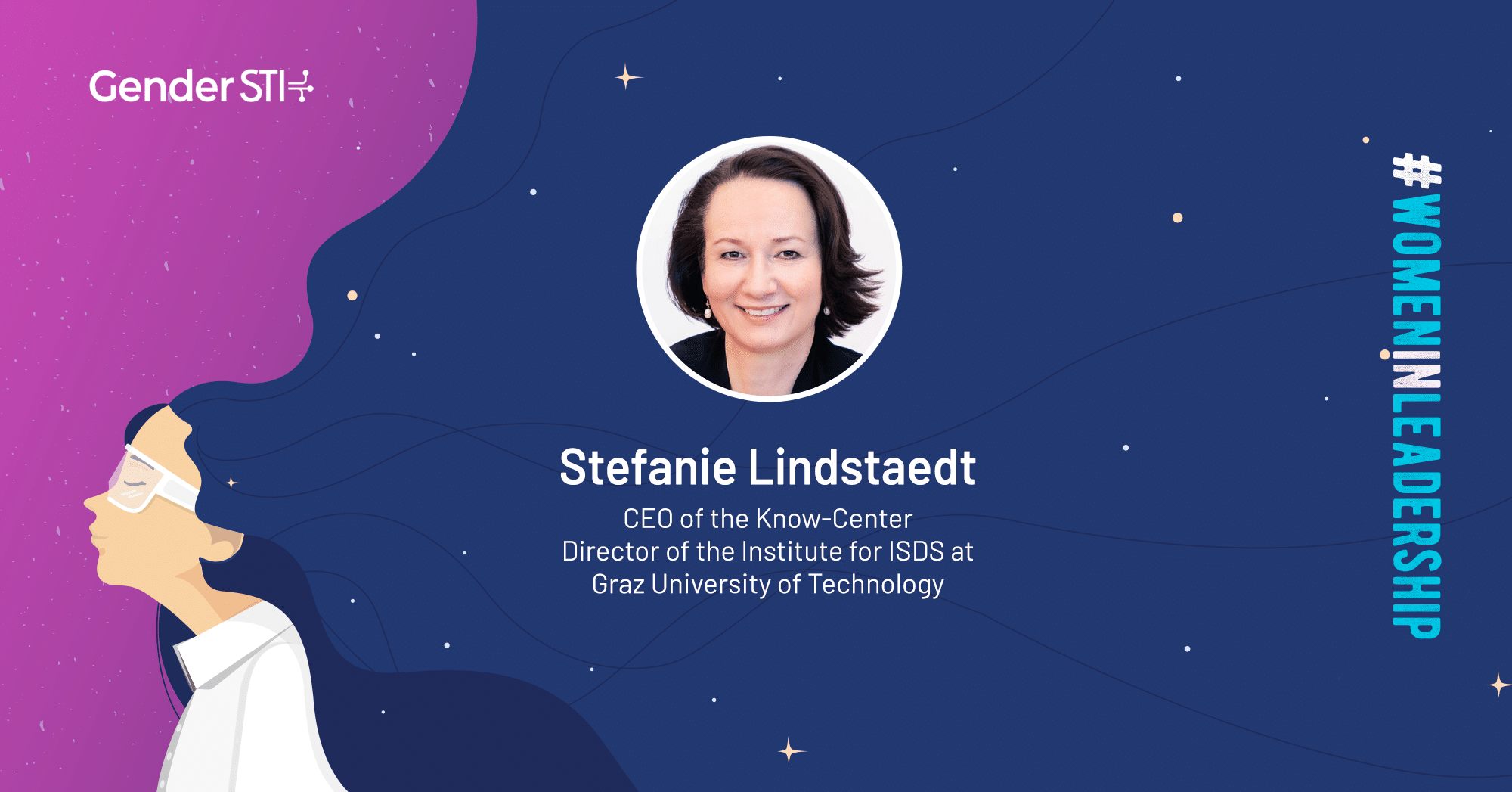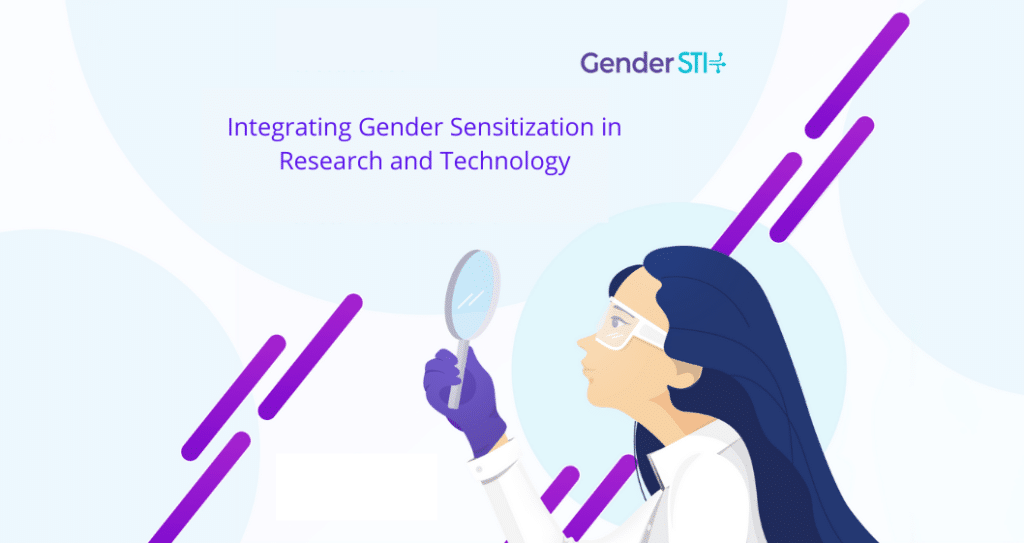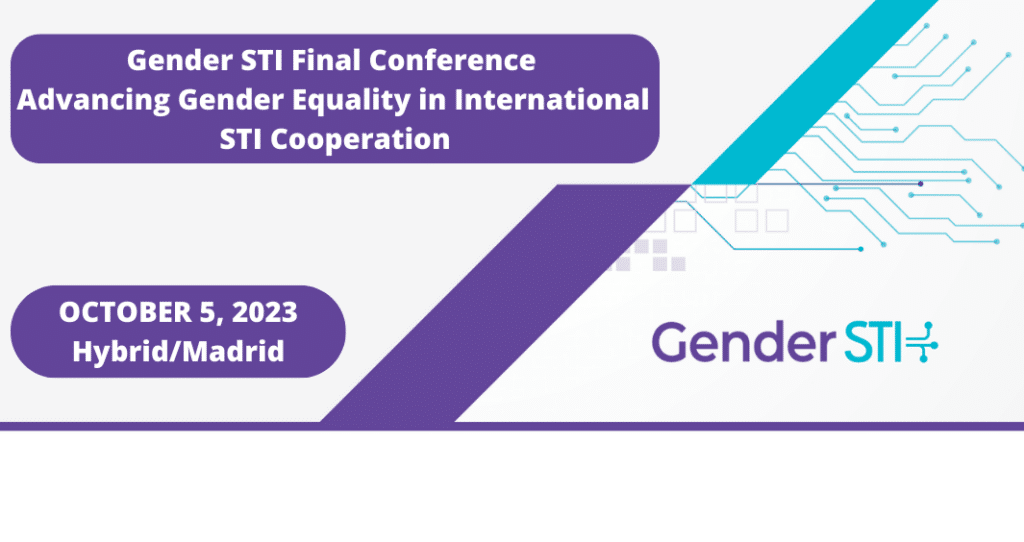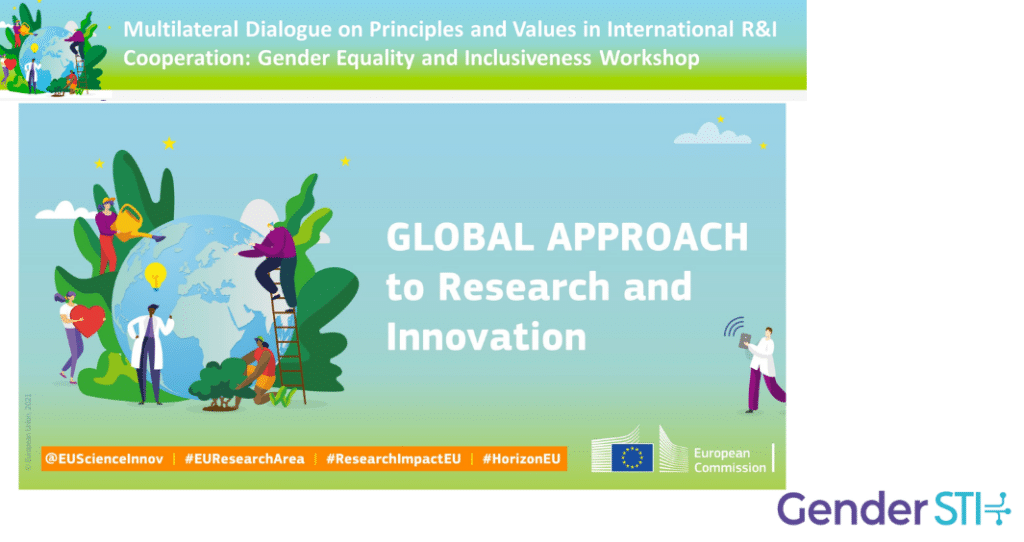Stefanie Lindstaedt was nominated for Gender STI's #WomenInLeadership Campaign, which celebrates women leaders in science, technology and innovation, by TU Graz in Austria.
She is the CEO of Know-Center Graz, a leading European research center for Data-driven Business and Artificial Intelligence, and Director of the Institute for Interactive Systems and Data Science (ISDS) at the Graz University of Technology. Her interdisciplinary research focuses on data-driven business and adaptive systems, artificial intelligence, integration of data-driven approaches (e.g., machine learning, neural networks) with knowledge-based models (e.g., ontologies, engineering models) and human-computer interaction.
Lindstaedt spoke to Gender STI about her experience as a woman leader in honor of International Women's Day 2021.
Can you tell us a bit about your job and your responsibilities?
I am the CEO of the Know-Center, a leading European research center for Data-driven Business and Artificial Intelligence, and the Director of the Institute for Interactive Systems and Data Science (ISDS) at Graz University of Technology.
At the Know-Center, I’m leading a team of over 130 data scientists and AI experts. We are supporting European companies of all sizes and sectors to turn data into value. Our aim is to develop secure, verifiable and explainable AI technologies that simultaneously protect privacy.
Did you face any challenges on your journey to become a woman leader? How did you overcome them?
In my early career, I was working at a large company within the automotive industry. Back then scientists and women were not particularly valued in this male-dominated industry and as a young person, it was difficult to make a difference. These challenges motivated me to join a start-up. In this smaller organization I could see the change that my work was making. This formed the foundation for my future career and gave me the needed strength to believe in myself, my ideas and my judgement.
What goals do you have as a leader?
My overall goal is to expand the data-driven business landscape in Europe and establish trustworthy and ethical AI technologies. I believe in the power of converging disciplines. We have to merge cultures, interdisciplinary backgrounds and different experiences in order to be successful. Computer science skills, for example, should be present in all areas of a company, including top management. There should be at least one (female) computer scientist on each management board.
How would you describe the gender balance in decision-making in science, technology and innovation (STI)?
At the moment there is no balance, the potential of diversity is often untapped. Women are still extremely underrepresented in STI – especially in leadership and decision-making positions. While some female empowerment initiatives are starting to bear fruit, I strongly support female quota – this is forcing all of us to recognize female potential across the different career stages.
What would you tell young girls and women who would like to become leaders in their professional fields one day?
Believe in yourself, your ideas and set challenging goals for yourself. Find like-minded people to work together and develop new ideas. Young girls and women are often told that striving for power is bad. But power implies the chance to follow your own vision. Question yourself, what kind of vision of yourself would you like to see come true? And then, go for it.
As you may know, the Gender STI project focuses on promoting gender equality in international cooperation in STI. Do you have any ideas on how we could promote gender equality in this area?
We have to change people's minds to overcome gender biases by promoting the visibility of women in STI, especially in leadership positions. It is also important to arouse interest in girls and young women to pursue a career in this field. But all of this is not enough if in the end we are not ready to give women the power to prove their potential. I would like to see a quota for women in STI decision-making boards and leadership positions.
What do you think needs to be done to increase the number of women leaders in STI?
As a female leader, you have the power to make the difference. The more female role models we have in STI, the lower the threshold for the next generations and the more women will dare to advance further into this field. At the Know-Center, I’m encouraging and supporting female researchers to advance their careers. As a result, we have a higher proportion of women than many comparable organizations and have succeeded in establishing a corporate culture which is respectful of women, values diversity (people from more than 20 nations work at Know-Center), is family-friendly and at the same time promotes scientific excellence.
Follow Gender STI’s #WomenInLeadership campaign on Twitter, LinkedIn and Facebook for more great interviews. Join the conversation using #WomenInLeadership, #IWD2021 and #GenderSTI.



